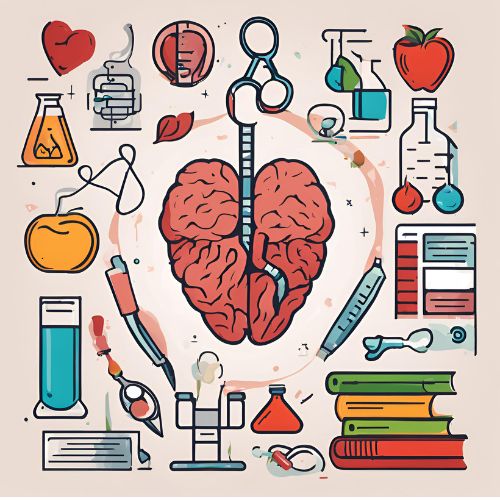
Introduction
Choosing a major in college can be a daunting task, especially in a field as broad and demanding as health sciences. Many students are looking for programs that are not only fulfilling and aligned with their career goals but also manageable in terms of workload and difficulty. In this article, we’ll explore the easiest health science majors that offer a balance of challenge and accessibility. We’ll dive into what makes these majors less demanding and why they might be the perfect fit for you.
What Makes a Health Science Major ‘Easy’?
Before we list the easiest health science majors, it’s important to understand what factors contribute to their perceived ease. Here are some key aspects:
1. Curriculum
The structure of the curriculum plays a significant role. Majors with fewer prerequisites, less intensive lab work, and more flexible electives tend to be easier.
2. Study Load
Majors that require less outside-of-class studying, fewer extensive projects, and manageable reading assignments are generally easier.
3. Class Size and Support
Programs with smaller class sizes and more access to faculty and peer support can make the learning process smoother.
4. Career Opportunities
Majors that lead to a wide range of career options without needing additional advanced degrees are often considered less stressful.
Top Easiest Health Science Majors
1. Public Health
Overview
Public health is one of the most popular and accessible health science majors. It focuses on the prevention of diseases and promotion of well-being through organized efforts and informed choices of society, organizations, public and private, communities, and individuals.
Why It’s Easy
- Interdisciplinary Approach: The coursework often includes a mix of sociology, psychology, environmental science, and health policy, which can be less intense than pure science courses.
- Fewer Lab Requirements: There is generally less emphasis on lab work compared to other health science majors.
- Broad Career Paths: Graduates can work in various settings, such as government agencies, non-profits, and private companies, often without the need for further education.
2. Health Education
Overview
Health education focuses on teaching individuals and communities how to maintain and improve their health. This major prepares students to develop and implement health programs and provide education about health topics.
Why It’s Easy
- Communication Focus: Emphasis on communication skills rather than intensive science courses.
- Project-Based Learning: Coursework often includes practical projects and presentations, which can be more engaging and less strenuous than exams.
- Diverse Opportunities: Careers in schools, community organizations, and healthcare facilities often don’t require additional degrees.
3. Health Services Administration
Overview
This major combines knowledge of health sciences with business principles. It prepares students to manage healthcare facilities, including hospitals, clinics, and public health organizations.
Why It’s Easy
- Business and Management Focus: Courses often include management, finance, and policy, which can be less challenging than science-heavy subjects.
- Hands-On Experience: Many programs include internships or practical experiences that enhance learning without intense academic pressure.
- Wide Range of Roles: Graduates can find employment in various administrative and managerial positions across the healthcare industry.
4. Health Informatics
Overview
Health informatics involves the use of information technology to organize and analyze health records. This major is ideal for those interested in the technical side of healthcare.
Why It’s Easy
- Tech-Focused Curriculum: Emphasis on computer science and data management rather than biological sciences.
- Growing Field: High demand for professionals in this field means ample job opportunities post-graduation.
- Less Rigorous Science Courses: Focus on technology and information systems reduces the need for intense science coursework.
5. Occupational Therapy Assistant
Overview
This major prepares students to assist occupational therapists in helping patients develop, recover, and improve the skills needed for daily living and working.
Why It’s Easy
- Associate Degree Option: Many programs offer an associate degree, which can be completed in two years.
- Practical Focus: Hands-on training and internships are a significant part of the curriculum, making learning more engaging.
- Less Theory, More Practice: The emphasis is on practical skills rather than theoretical knowledge.

Tips for Success in Health Science Majors
1. Leverage Resources
Take advantage of all available resources, such as tutoring centers, study groups, and online materials. These can provide additional support and make coursework more manageable.
2. Time Management
Effective time management is crucial. Create a schedule that balances coursework, study time, and personal activities to avoid burnout.
3. Engage in Internships
Gaining practical experience through internships can enhance understanding and provide real-world applications for theoretical knowledge.
4. Network
Building a professional network can open doors to job opportunities and provide support during your academic journey. Attend industry events, join relevant clubs, and connect with peers and professionals in the field.
5. Stay Organized
Keep track of assignments, deadlines, and exams using planners or digital tools. Staying organized can reduce stress and ensure you meet all academic requirements.
Conclusion
Choosing a major is a significant decision that can shape your future career and personal satisfaction. The easiest health science majors discussed in this article offer a balanced approach, providing a fulfilling educational experience without overwhelming demands. Whether you are drawn to public health, health education, health services administration, health informatics, or becoming an occupational therapy assistant, these majors can provide a rewarding and manageable path to a career in healthcare.
By understanding the factors that contribute to the ease of these majors and following the tips for success, you can make an informed decision that aligns with your goals and interests. Remember, the right major for you is one that not only aligns with your career aspirations but also suits your learning style and personal strengths.



















